Politics
State of the Union: Biden draws election battle lines in fiery speech
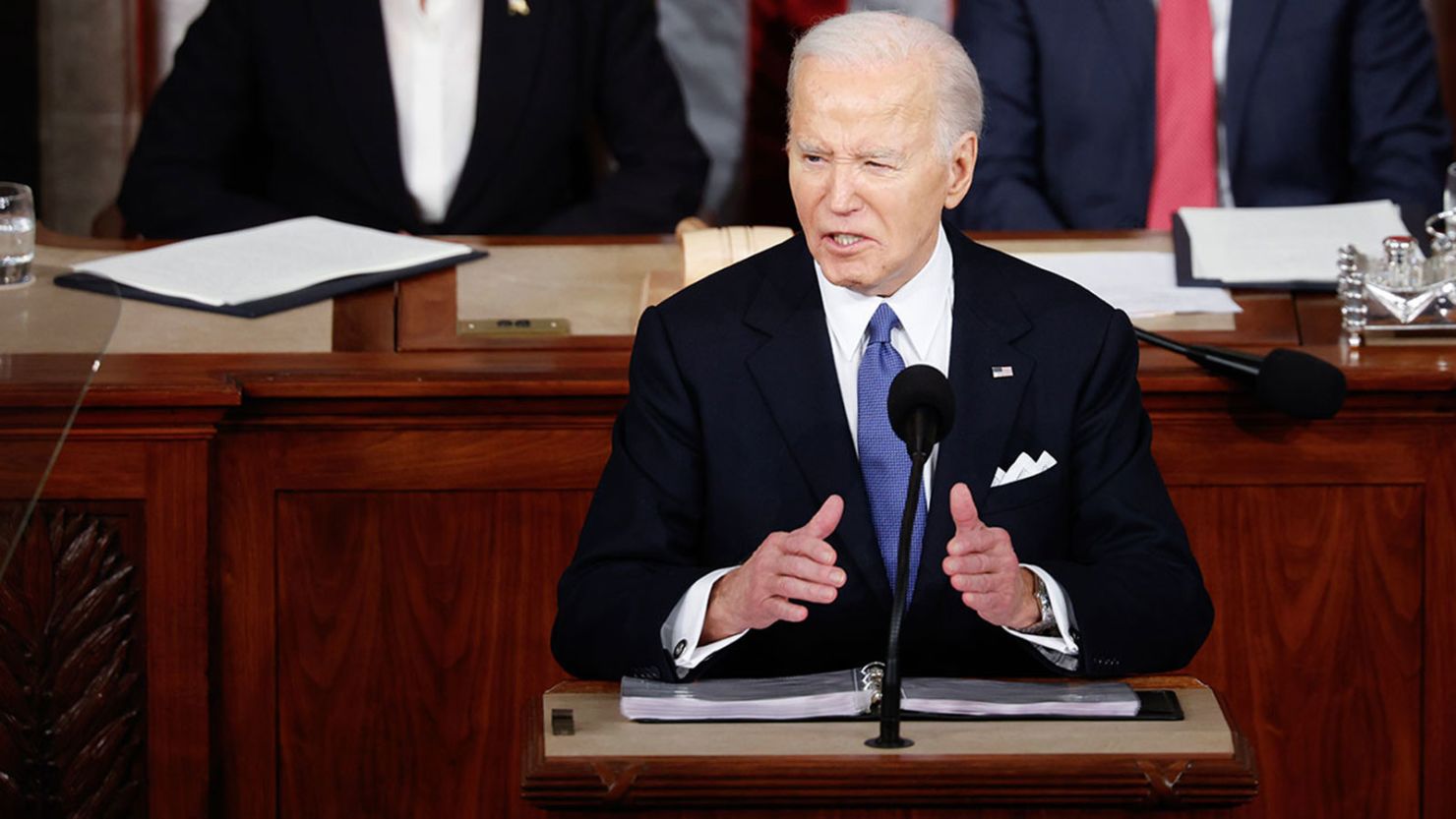
President Joe Biden delivered a fiery State of the Union address on Thursday, taking repeated swipes at Donald Trump and covering the broad themes of his re-election campaign.
Biden used the term “my predecessor” to refer to Trump 13 times in a speech that lasted more than an hour.
He accused his likely election opponent of “bowing down” to Russia and criticised him over the Capitol riot.
Biden also covered immigration, abortion, the economy and Gaza.
The atmosphere in the House chamber was raucous at times, with loud cheering from Democrats and heckling from some Republicans.
It was a spectacle more typical of a political convention than a State of the Union address – a constitutionally mandated report that is usually heavy on pageantry and policy.
But this is an election year and the stakes for Biden were high. He was feisty and confrontational as he sought to draw the battle lines for his nascent campaign.
Taking aim at Trump
Unsurprisingly, many of his barbs were aimed at Trump given he is almost certain to be his opponent in November’s general election.
“My predecessor failed the most basic duty any president owes the American people – the duty to care,” he said in reference to Trump’s handling of the Covid pandemic. “That is unforgivable.”
He criticised Trump for his recent comments about Russia and Nato, and said that he sought to “bury the truth” about the 6 January 2021 attack on the US Capitol.
He blamed him for the Supreme Court decision to overturn the Roe v Wade ruling which guaranteed abortion rights and for blocking bipartisan immigration reforms.
Trump, meanwhile, had promised to react in real time to the speech on his Truth Social platform. “Biden is on the run from his record and lying like crazy to try to escape accountability for the horrific devastation he and his party have created,” he wrote.
“They continue the very policies that are causing this horror show to go,” he said.
Biden aggressive approach on Thursday may have been born, at least in part, out of necessity. At 81, he is the oldest president in US history and has been beset by questions about his age and mental acuity.
His approval ratings are the lowest of any modern president seeking re-election. He is in a statistical dead heat with Trump, however, who also is viewed negatively by voters.
Even when Biden addressed his age, he did so with a jab at Trump, who at 77 is only a few years younger than him.
“I know it may not look like it, but I’ve been around for a while,” he said. After rattling off a list of positive attributes he said defined America, he added a kicker.
“Some other people my age see a different story: an American story of resentment, revenge and retribution.”
A punchy exchange on immigration
Biden regularly ad-libbed responses to what was at times a hostile audience on the Republican side of the chamber. He quipped, parried and expressed mock surprise at their outbursts.
When the topic turned to immigration, a subject of political vulnerability for the president, he was once again ready to engage. But here, he stumbled.
After Republican Congresswoman Marjorie Taylor Greene accused him of ignoring the murder of Georgia nursing student Laken Riley, allegedly by an undocumented Venezuelan immigrant, Biden held up a button with her name on it – one Greene had given him as he walked in.
After seemingly mispronouncing her name as “Lincoln” Riley, he said she was murdered by an “illegal” – a term criticised by immigrant-rights groups.
Biden went on to call for Republicans to support the bipartisan immigration legislation passed by the Senate and accused Trump of “playing politics” by opposing the bill for electoral gain. The damage, however, may have been done.
A sales pitch for November
When Biden wasn’t throwing haymakers at his opponent, he sought to highlight what he characterised as a record of accomplishment during his first term and outline a sales pitch for his re-election.
“I inherited an economy that was on the brink,” he said, “and now our economy is the envy of the world.”
Figures on the American economy have been trending up for months now. The public perception of the economy, however, has been much darker.
Biden nodded at this split, calling the US economic revival “the greatest story never told”.
Whether the president’s words will be enough to change minds, however, remains to be seen.
It was a speech geared toward the American middle class – the voters of moderate means who make up the bulk of the electorate.
It included a variety of new proposals, most of which would require congressional legislation to enact – an unlikely scenario unless Democrats retake the House of Representatives in November.
He pitched a tax credit for new home buyers, who have seen their purchasing power eroded by higher mortgage rates. He also called for expanding a cap on prescription drug spending to every American who has health insurance and raising taxes on corporations.
Walking the line on Gaza
Biden opened his speech with a call for military aid to Ukraine, but the bulk of his discussion of foreign policy came towards the end when he turned his attention to the Middle East.
The Gaza war has divided Democrats, with a vocal portion of the president’s liberal flank calling for the US to use every means at its disposal to push for a ceasefire. Some took to the Washington streets on Thursday evening in an unsuccessful attempt to block the president’s motorcade from reaching the Capitol.
Biden said his administration was working towards a ceasefire that would last “at least 6 weeks,” and he detailed a new plan – announced earlier in the day – for the US to construct a temporary seaport in Gaza to allow humanitarian aid to enter by ship.
He had some harsh words for Israel, calling the civilian casualties in Gaza “heartbreaking” and saying it had a “fundamental responsibility” to protect innocent lives.
Biden’s speech, because it was delivered without any significant stumbles or gaffes, is a hurdle cleared for the president – and its content could serve as a guide to how his campaign plans to sell the American public on another four years of Democratic governance.
At the very least, it will probably convince nervous Democrats that their presumptive nominee is ready to go toe-to-toe with his Republican opponent in November.
© BBC News
Current Affairs
New survey points to coalition-led SA, but voter apathy a major factor
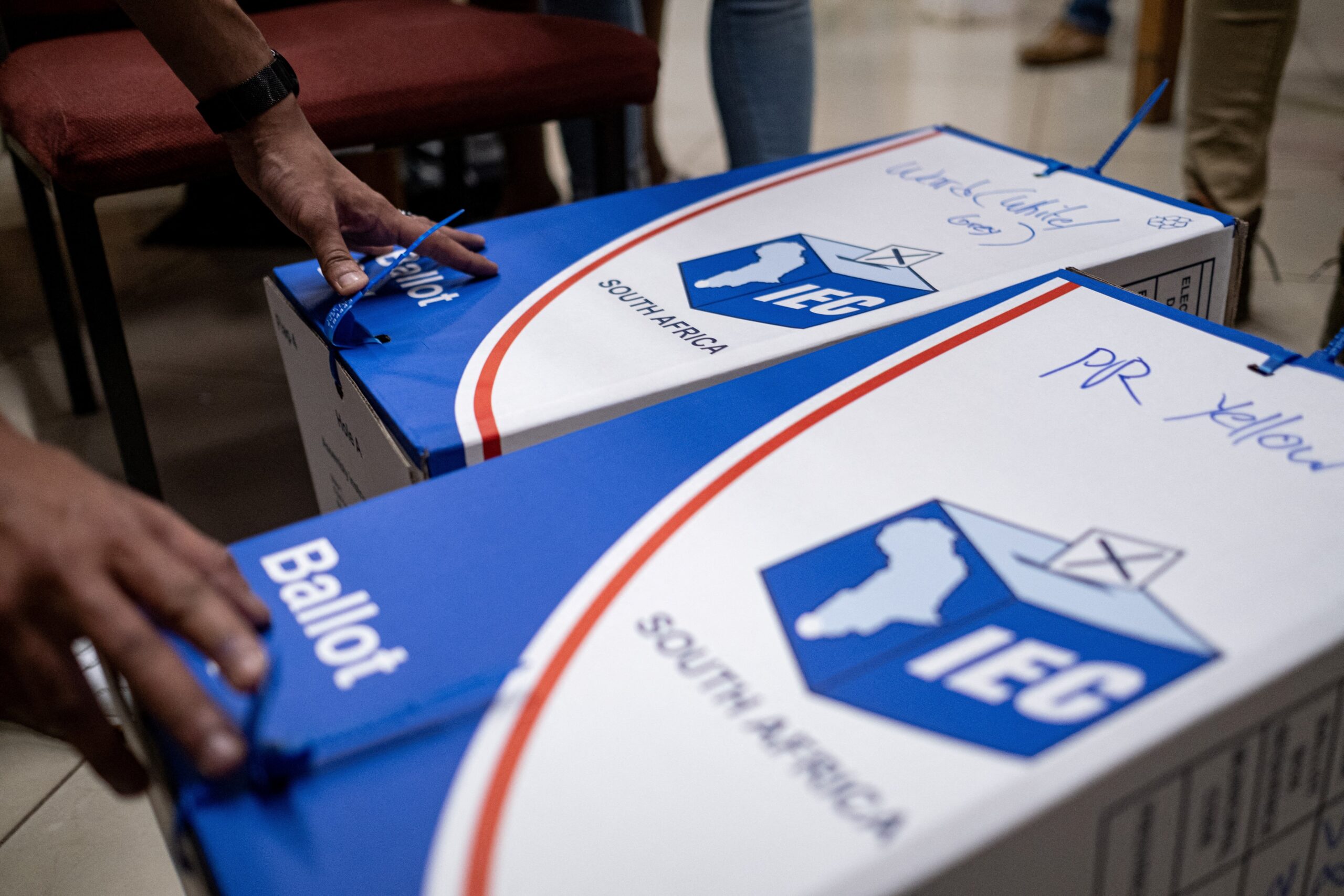
The results of an in-depth survey conducted by African Innovation Research SA (AIRSA) point to the country’s future being in the hands of coalitions and raise concerns about voter apathy, especially among the youth.
The initial sample comprised some 5 000 participants, of whom 46% confirmed they were either not interested in voting despite being registered or had not registered.
The majority of those surveyed by the independent research company based in Cape Town were in the 18–35 age group, a generation who are increasingly disillusioned with how the country is run.
The remaining 2 700 participants, who were interviewed from across a broad section of South Africa’s nine provinces, indicated that support for the ruling ANC is in decline, dipping below the 50% mark to 43% overall.
The ANC’s strongholds remain the Eastern Cape (61% of those surveyed), 58% in the Free State and 65% in Limpopo, where its challenger is the EFF at 23.7%.
In the country’s fourth-largest economy, Mpumalanga, the ANC leads with 52.3%, the EFF at 21.7% and the DA at 19.7%.
In the North West province, it’s a similar pattern, albeit reversed, with the ANC at 48.3%, the DA at 27.7% and the EFF at 20.0%, while in the Northern Cape, the ANC leads with 47.3%, followed by the DA with 24.3% and the EFF with 15.7%.
The country’s economic engine, Gauteng, is a key player in the power dynamics. Here, the ANC garnered 38.7%, but the EFF is growing its base to 19.3%, challenging the DA’s 20% of the province’s voters.
In the Western Cape, as expected, the DA holds onto a leading margin at 46.0%, with the ANC and EFF at 22.3% and 8.7% respectively. Gayton McKenzie’s Patriotic Alliance (PA) also features in the country’s southernmost province, making a notable showing at 5%.
While former president Jacob Zuma may have been barred from becoming a member of Parliament in the Constitutional Court this week, the new uMkhonto weSizwe Party (MKP) will play a pivotal role in KwaZulu-Natal. Results of the AIRSA survey show that while the ANC currently remains ahead with 28.7%, it’s an even race in the province with similar support for the IFP at 26.0% and MKP at 26.7%.
As experience dictates, the smaller parties will begin a series of bargaining tactics as to whose deck they end up in and call the shots.
At collectively accounting for around 20% of the upcoming vote, these potential coalition partners carry significant influence.
AIRSA also noted that voting in this sector is personality-driven as opposed to ideology.
The fragmentation of South Africa’s political landscape could also contribute to increasing dissatisfaction and disillusionment, particularly when linked to the country’s youth and increasing unemployment.
© IOL (Cape Times)
Politics
Zuma lashes out at judges after election ban
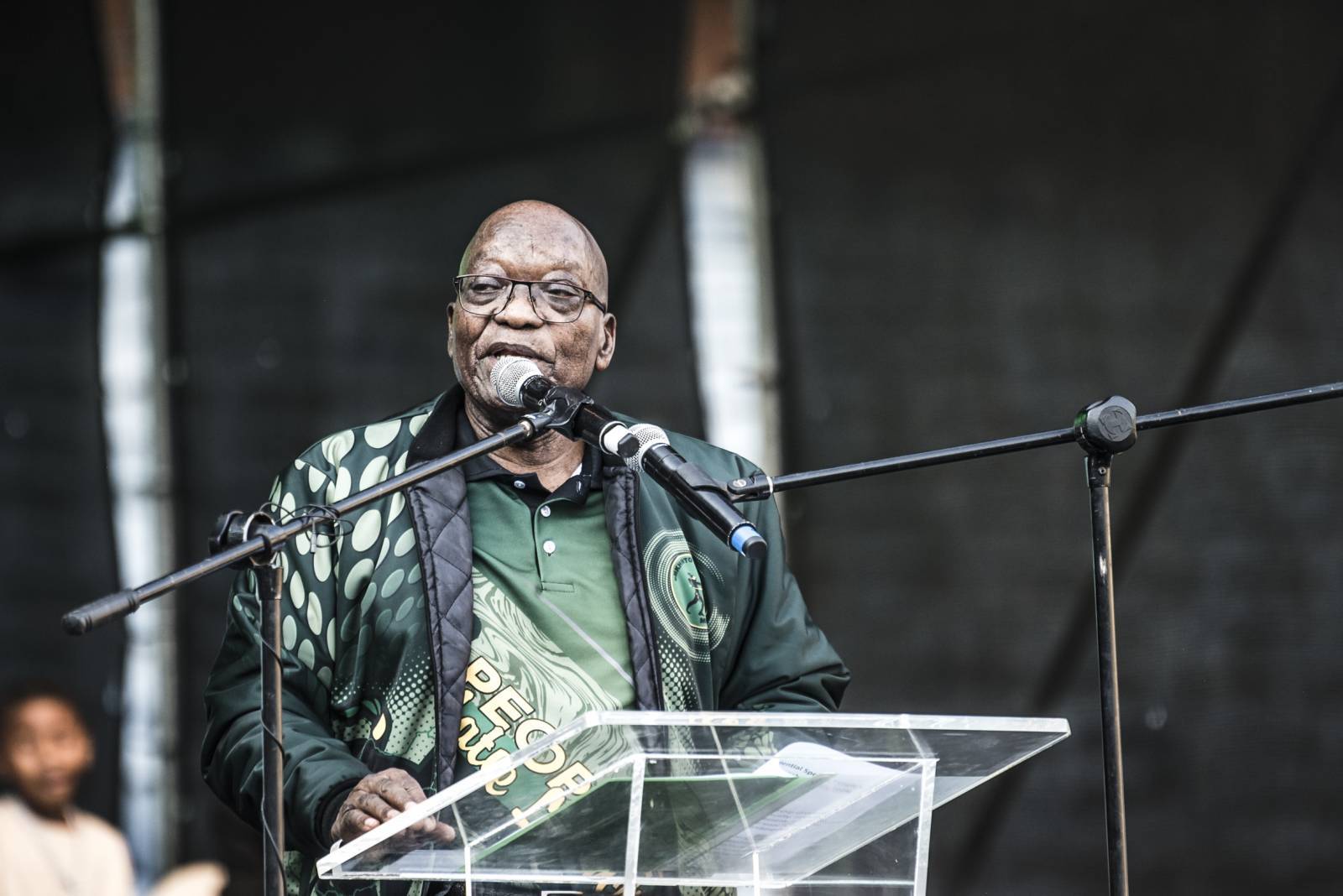
Former President Jacob Zuma has launched a scathing attack on some of the country’s top judges after he was barred from running for parliament on Monday.
In his first interview since the ban, Zuma told the BBC the Constitutional Court was wrong to decide he was unfit to run, based on his 2021 conviction for contempt of court.
“I expected that from our judges, but they are definitely wrong. Not correct,” the 82-year-old said, adding that the constitution should be changed.
Ahead of next week’s general election, Zuma had been campaigning under the banner of the newly formed uMkhonto weSizwe (MK) party.
He joined the party after falling out with the governing African National Congress (ANC), which he used to lead.
The electoral commission argued that the constitution bars anyone who was sentenced to more than 12 months in prison from serving as a lawmaker – a view backed by the Constitutional Court judges.
Zuma was convicted in 2021 for refusing to testify at an inquiry investigating corruption during his presidency.
His lawyers had insisted he was entitled to become an MP as his sentence was reduced to three months after current President Cyril Ramaphosa released him from prison in what was widely seen as an attempt to placate the former president’s angry supporters.
“The judges of the Constitutional Court have acted very funny to me – towards me in particular,” Zuma told the BBC.
“They are not taking into account the will of the people of this country, they use their own will.”
He was president from 2009 to 2018 before being forced out as leader of the ANC amid allegations of widespread corruption in his government.
The corruption, widely known as “State Capture”, saw hundreds of millions of rands of public assets taken into private hands. Zuma has always denied any direct role in corruption, but is due to face trial next year on allegations of bribery.
He told the BBC he had been wrongly stripped of his role as leader of the ANC.
“I don’t know what ‘State Capture’ means. If people say I am corrupt, what did I do? Do you have any facts about it? Am I guilty?
“I was removed before the end of my term, and nothing was produced as evidence that this was an issue.”
Zuma’s MK party had previously voiced its desire to change South Africa’s constitution, which was drawn up 30 years ago at the birth of the country’s democracy following decades of white-minority rule.
Asked about this in the light of his election ban, Zuma reiterated that the historic document needed to be changed.
“This constitution in the continent of Africa is guided by the laws from Europe, not us,” he said.
“There is nothing that has come right in this continent because we are still dominated by those who were the ones [who] slaved us, and after slavery, oppressed us, and after oppression, put their own laws to run us.
“There are details that clash with our lives.”
An Ipsos opinion poll released last month gave MK 8% of the vote, and the ANC 40% as it loses support to MK and other opposition parties.
But some analysts suggest that with the governing party stepping up its campaign in recent weeks, it could still cross the 50% mark. But if the ANC gets less than half of the vote, it would lose its majority for the first time in 30 years.
MK is expected to do especially well in Zuma’s home region of KwaZulu-Natal. Some opinion polls suggest it could emerge as the biggest party in KwaZulu-Natal, ending ANC dominance of the region.
After Zuma was jailed for contempt of court in 2021, angry supporters sparked days of deadly riots. More than 300 people were killed in the clashes.
On Wednesday Zuma said this violence demonstrated the scale of public support for him.
“This must tell you that the masses of this country loves Zuma – that’s why we had that,” he said.
When asked by the BBC if he would use this interview to call for peace and calm ahead of next week’s election, Zuma replied: “I’ve always done so.”
© BBC News
Current Affairs
Iran’s supreme leader leads prayers at Raisi funeral
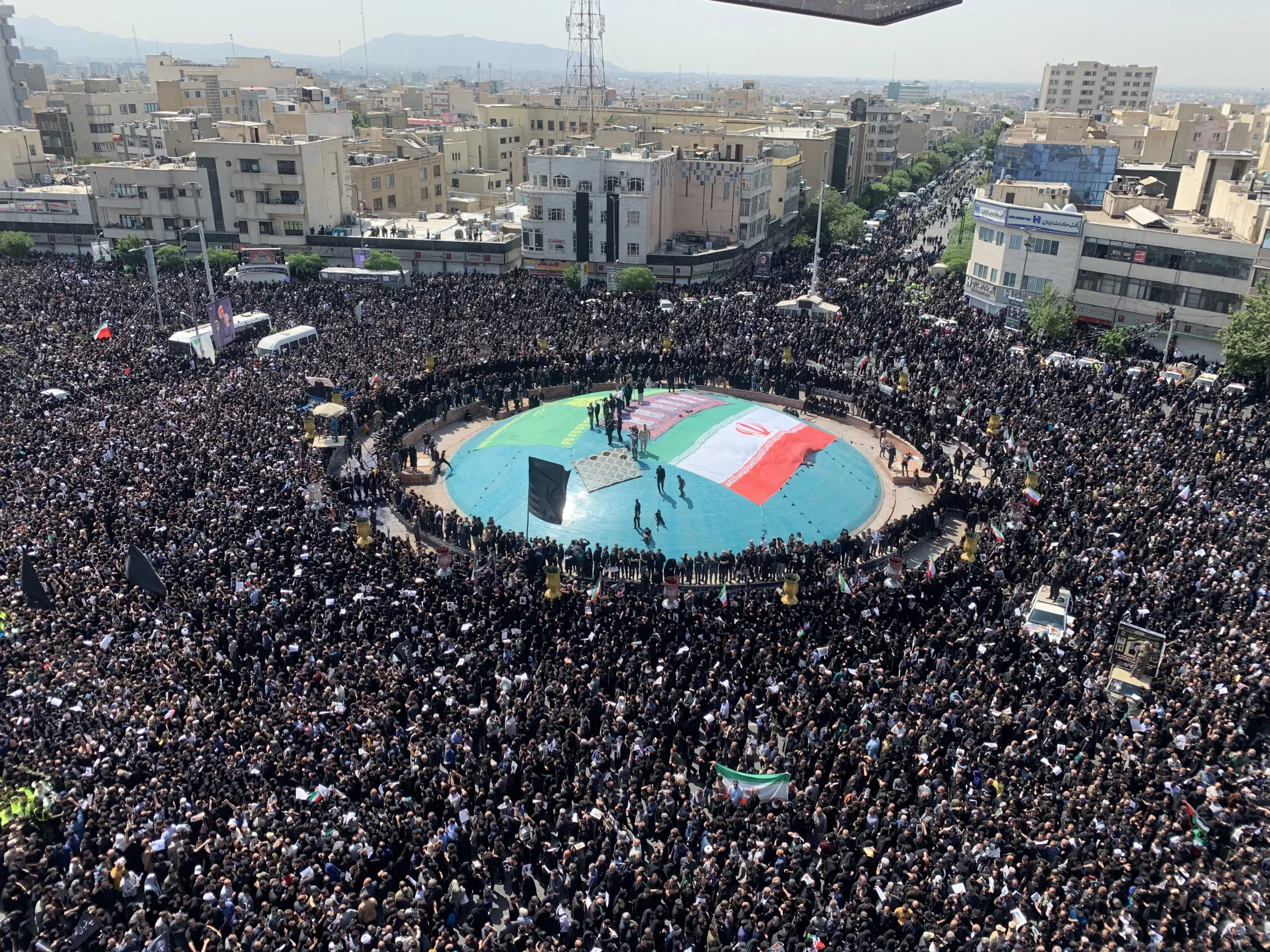
Iran’s supreme leader has presided over a funeral for the country’s late president, foreign minister and others killed in a helicopter crash on Sunday.
Ayatollah Ali Khamenei led prayers at Tehran University, where caskets carrying the dead were draped in Iranian flags.
President Ebrahim Raisi died alongside Foreign Minister Hossein Amir-Abdollahian and six others in a helicopter crash near the border with Azerbaijan.
Authorities had warned against demonstrations against the funeral procession and insults posted online.
“Oh Allah, we didn’t see anything but good from him,” Ayatollah Khamenei said in the standard prayer for the dead in Arabic.
Iran’s acting president, Mohammad Mokhber, stood nearby and openly wept during the service.
People then carried the coffins out on their shoulders, with chants of “Death to America” heard outside.
They loaded them onto a trailer for a procession through downtown Tehran to Azadi Square, where Raisi gave speeches in the past.
In attendance were top leaders of Iran’s paramilitary Revolutionary Guard, one of the country’s major power centres.
Also on hand was Ismail Haniyeh of Hamas, the militant group that Iran has armed and supported during the ongoing Israel-Hamas war.
Haniyeh is widely considered Hamas’s overall leader and has been a prominent member of the movement since 1980. The US Department of State designated him a terrorist in 2018.
“I come in the name of the Palestinian people, in the name of the resistance factions of Gaza…to express our condolences,” Haniyeh said.
He also described meeting Raisi in Tehran during Ramadan, the holy Muslim fasting month.
He said he heard the president say that “the Palestinian issue” remains the key one of the Muslim world, which “must fulfil their obligations to the Palestinians to liberate their land”.
He also claimed that Raisi called Hamas’ October 7 attack in Israel, which saw 1,200 people killed and 250 others taken hostage, an “earthquake in the heart of the Zionist entity”.
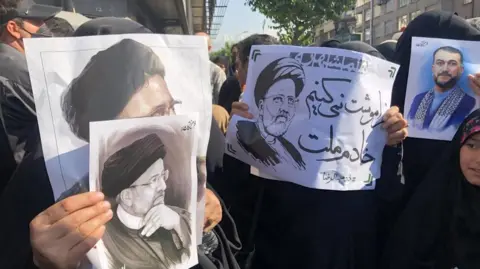
Also expected to attend services in Tehran were Pakistan’s Prime Minister Shehbaz Sharif and a delegation from the Taliban of Afghanistan, which included their Foreign Minister Amir Khan Mutaqqi.
Iran’s theocracy declared five days of mourning over Sunday’s crash, encouraging people to attend the public mourning sessions.
Typically, government employees and schoolchildren attend such events en masse, while others take part out of patriotism, curiosity or to witness historic events.
For Iran’s Shiite theocracy, mass demonstrations have been crucial to demonstrating the legitimacy of their leadership since millions thronged the streets of Tehran to welcome Grand Ayatollah Ruhollah Khomeini in 1979 during the Islamic Revolution, and also attended his funeral 10 years later.
An estimated one million turned out in 2020 for processions for the late Revolutionary Guard General Qasem Soleimani, who was killed in a US drone strike in Baghdad.
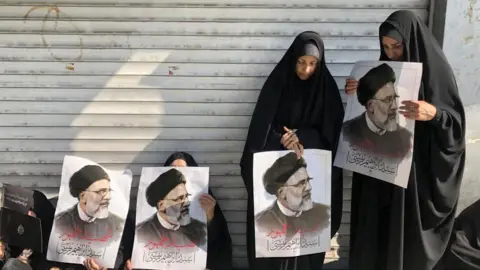
Across the capital, large banners were raised hailing Raisi as “the martyr of service”, while others bade “farewell to the servant of the disadvantaged”.
Some residents in Tehran received texts urging them to attend Wednesday’s ceremonies, the AFP news agency reported.
Footage carried by state TV showed streets filled with mourners, many of whom were carrying pictures of Raisi or the Iranian flag.
Funeral rites for the men began on Tuesday in the city of Tabriz and the Shiite clerical centre of Qom, where thousands of mourners attended ceremonies.
After Wednesday’s procession in the capital, Raisi’s remains will be moved to South Khorasan province, before being transferred to his home city of Mashhad in the northeast.
He will then be buried on Thursday evening in the city after funeral rites at the Imam Reza shrine.
Raisi, a hardline cleric, was a highly divisive figure in Iran. In the 1980s, he oversaw the execution of scores of opposition activists while working as a prosecutor.
He unleashed a brutal crackdown against demonstrators angered by the killing of 22-year-old Mahsa Amini in 2022. She died three days after she was detained by morality police in the capital for allegedly violating Iran’s strict rules requiring women to cover their hair with a hijab, or headscarf.
But his ultra-conservative outlook won favour with supporters of the regime, and Raisi was viewed as a possible successor to Ayatollah Khamenei.
© BBC News
Politics
Ireland to recognise Palestinian state
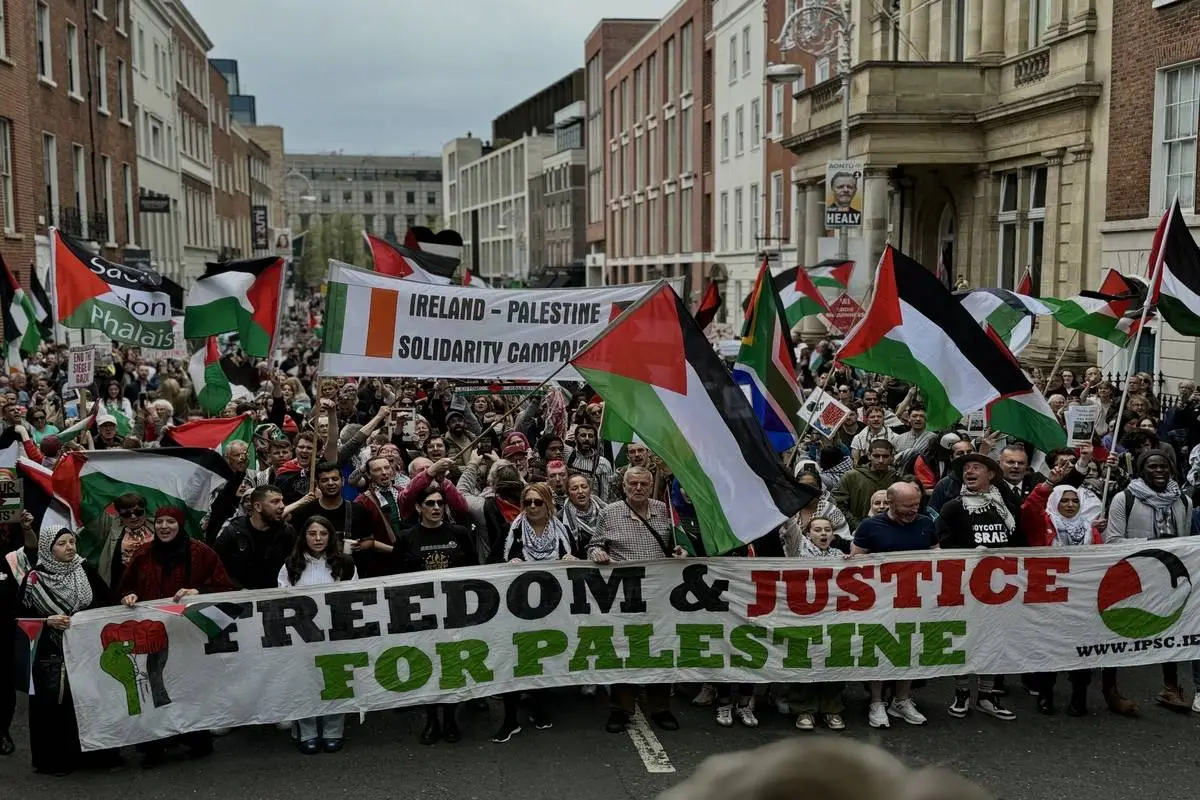
Ireland will recognise a Palestinian state, Prime Minister Simon Harris said on Wednesday, adding that he expected other countries to follow in the coming weeks after talking to world leaders.
“Today, Ireland, Norway, and Spain are announcing that we recognise the state of Palestine,” Harris said at a press conference.
“In the lead up to today’s announcement, I’ve spoken with a number of other leaders and counterparts and I’m confident that further countries will join us in taking this important step in the coming weeks,” he added.
He said a two-state solution was the only credible path to peace and security for Israel, Palestine and their peoples.
The recognition of statehood has particular resonance in Ireland given its history, Harris said.
“Taking our place on the world stage and being recognised by others as having the right to be there was a matter of the highest importance for the founders of our state,” he said.
He added that Ireland was unequivocal in fully recognising Israel and its right to exist “securely and in peace with its neighbours”, and he called for all hostages in Gaza to be immediately returned.
Ireland’s recognition of Palestine will be formally enacted on May 28, foreign minister Micheal Martin said on X.
© Reuters




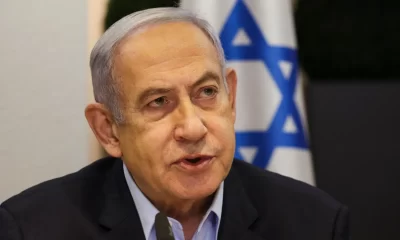

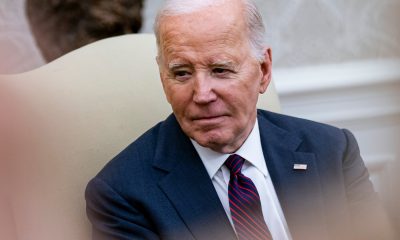

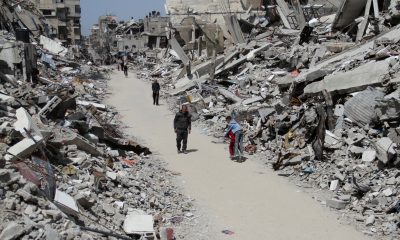

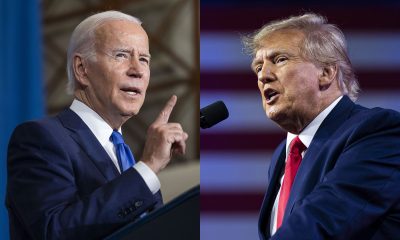








You must be logged in to post a comment Login